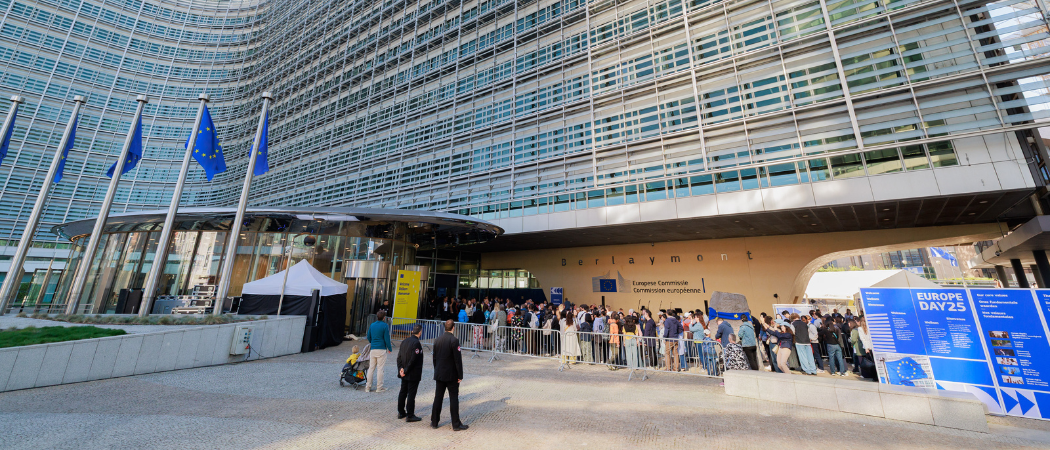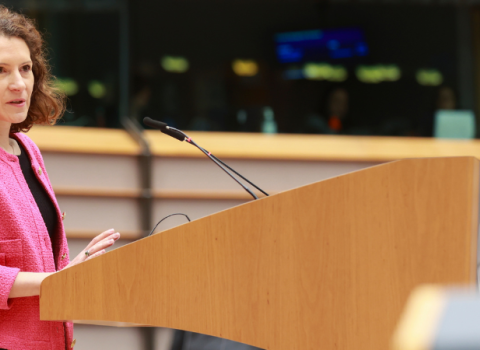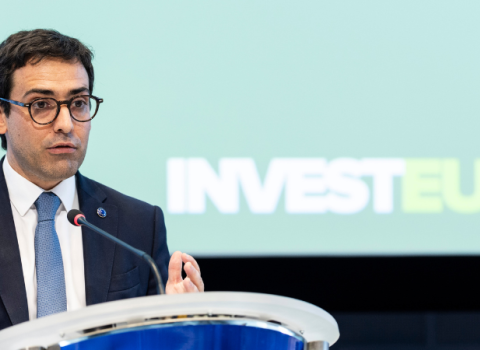The new mega-fund would merge programmes that are “successfully contributing to competitiveness”

Christophe Licoppe / European Union
EU Commissioners have discussed the possibility of bundling the next Framework Programme for research and innovation with other funding instruments under the European Competitiveness Fund, according to a leaked briefing note presented by European Commission president Ursula von der Leyen at a preparatory meeting on the EU’s multiannual budget.
On May 14, the College of Commissioners, led by von der Leyen, held an orientation debate on the next Multiannual Financial Framework (MFF).
During the meeting, it appears that a document dated May 11 outlining the key elements of the next MFF was circulated under the authority von der Leyen and budget commissioner Piotr Serafin. The note was seen by Science|Business on May 16.
The content of the leaked document corroborates a chart obtained last week by Science|Business, detailing the proposed structure of the European Competitiveness Fund.
The fund appears to be intended as a new governance framework to consolidate several EU funding programmes, including the successor to Horizon Europe. Stéphane Séjourné, the Commission’s executive vice-president for prosperity and industrial strategy, has also confirmed that the Competitiveness fund would include research and innovation programmes.
However, the European Parliament, member states and research lobbies have opposed the idea and call instead for a “standalone” research programme.
Related articles
- Brussels rumour mill churns out new scenario for FP10
- Fate of research in competition mega-fund is no done deal
According to the leaked Commission note, existing programmes such as Horizon Europe and the Digital Europe Programme provide support that is “fragmented and incomplete,” with overlaps, gaps and varied rules that create complexity for users, particularly SMEs. As a result, the Commission argues, “it is therefore essential to join and scale up the tools of existing programmes to become a true European Competitiveness Fund, providing coherent support along the investment journey.”
The Competitiveness Fund would be structured around five main pillars, or a “small number of sectoral windows,” each supported by a common financial toolbox.
In addition, an advisory board comprising representatives from industry, research and private investors would be established to provide guidance on the fund’s priorities and feedback on its implementation.
A Commission spokesperson told Science|Business that preparations for the post-2027 EU budget are “in full swing.” A proposal is being planned for publication on July 16. The Commission has also opened a public consultation on diverse topics for the next MFF, which will remain open until the end of May.
Keeping a few standalone programmes
The document also refers to Erasmus+, stating that skills development will be addressed through a “reformed” version of the programme, which will continue to operate as a standalone initiative.
A limited number of such self-standing programmes would also receive funding through a dedicated window within an “Horizon Competitiveness Fund,” which appears to be synonymous with the broader Competitiveness Fund.





 A unique international forum for public research organisations and companies to connect their external engagement with strategic interests around their R&D system.
A unique international forum for public research organisations and companies to connect their external engagement with strategic interests around their R&D system.